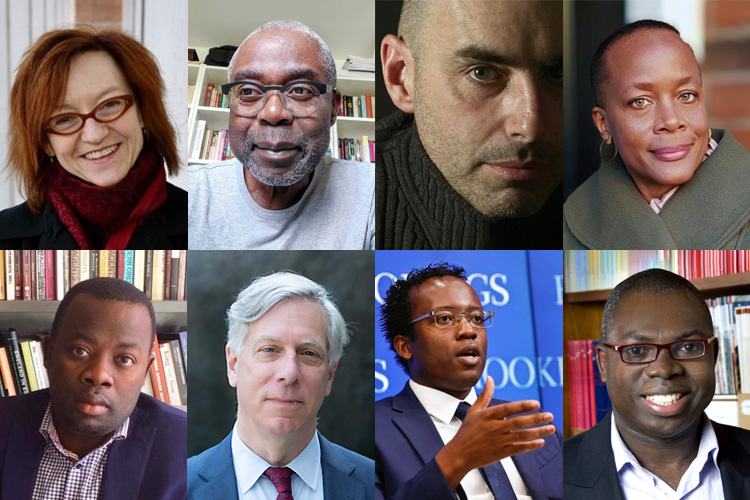An international group of African studies scholars has launched the Elite Africa Project, aimed at redefining the notion of power in Africa and shifting public perceptions of the continent’s most prominent and prosperous. The initiative is a hub of information for scholars, activists, journalists and practitioners with an aim to foster deeper engagement with the expanse of creativity, expertise and power that thrives in Africa today, while also challenging negative portrayals of the region.
“We’re in a moment where Africans are playing a leading role in almost every field of human endeavor you can imagine,” says Antoinette Handley, a professor in the Department of Political Science in the Faculty of Arts & Science at the University of Toronto (U of T) and principal investigator of the project.
“For example, several of the world’s top prizes for literature have gone to a range of African authors in recent years, the 2022 Pritzker Architecture Prize was awarded to a native of Burkina Faso – the first African and first Black architect to receive the honour — the World Health Organization is currently headed by an Ethiopian public health researcher, and the World Trade Organization is headed up by the former finance minister of Nigeria.”
In addition to Handley and fellow U of T scholars Dickson Eyoh, Sean Hawkins and Nakanyike B. Musisi, the project is also led by Gerald Bareebe (York University), Peter Lewis (Johns Hopkins University), Landry Signé (Arizona State University and the Brookings Institution) and Thomas Kwasi Tieku (King’s University College, Western University).
The researchers suggest despite the many achievements emerging from across the world’s second-most populous continent, most popular and academic treatments of Africa tend to feature people commonly regarded as weak, small, poor or villainous and despotic. Calling for a reassessment of former approaches, their aims are threefold:
- Challenge the narrow and sometimes racist popular understanding that the continent is comprised largely of poor or disempowered populations and a class of individuals who are either corrupt, self-serving or puppets of international forces.
- Map the dynamics of elite formation in Africa.
- Present power as more multidimensional: as comprising “soft” forms of power such as knowledge, skills and creativity, as much as it also comprises the more commonly considered “hard” forms of power, such as coercion or material resources.
“Ultimately, our goal with the Elite Africa Project, aptly named to refer to the people who are unusually influential in agenda-setting and decision-making, is to challenge academic and public perceptions of influential Africans as grasping and self-interested — a framing that perpetuates negative depictions of the continent and its peoples and draws on a simplistic understanding of power and how it is wielded,” Handley said.

“Our focus is on the burgeoning ranks of globally renowned artists, prominent intellectuals, innovative businesspeople, accomplished scientists and many others who are flourishing and, in the process, transform both Africa and the global fields within which they work.”
The project’s central feature is a database curated primarily for scholars and students of African studies and designed to create an entry point into more research on and a better understanding of elites and elite accomplishments across the continent.
“With the help of our team from across the globe, we're building an essential hub of information for scholars, activists, journalists and practitioners — anyone intrigued by Africa's vibrant domains ranging from politics and economics to religion and the arts, and everything in between,” said Eyoh, an associate professor in the Department of Political Science and the African Studies Centre at New College in the Faculty of Arts & Science at U of T.
The database contains key academic works, a curated assortment of relevant podcasts and videos, and a collection of biographies of personalities and organizations.
Introducing the Elite Africa Project and Database from Elite Africa Project on Vimeo.
“Whether someone is looking for information about highly regarded African photographers or fashion designers, or some background on the political history of any one African nation, or the roles of religious leaders across many African societies, our hope is that the database can serve as a starting point or a source of supplementary information in the course of their investigation,” Handley said. “It could also be used as a teaching tool for students at any level.”
Another key feature of the project’s website is a weekly roundup of news articles offering insights into a wide variety of people, places and proceedings making headlines both domestically and internationally.
“We're very conscious about presenting items that are not just limited to politics, or big economic stories, but represent accomplishments by leading Africans in every imaginable sphere of human activity,” said Handley.
“There’s a huge amount of news stories and data about Africa out there — we’re trying to present a shorthand, easy overview that provides a more well-rounded picture. It lands in your Instagram feed once a week and you can keep track broadly of what’s happening on the continent.”
Handley’s hope for the project is, “to go beyond negative stereotypes and ensure a broader, balanced, perhaps more positive view of all that Africa has to offer.”

